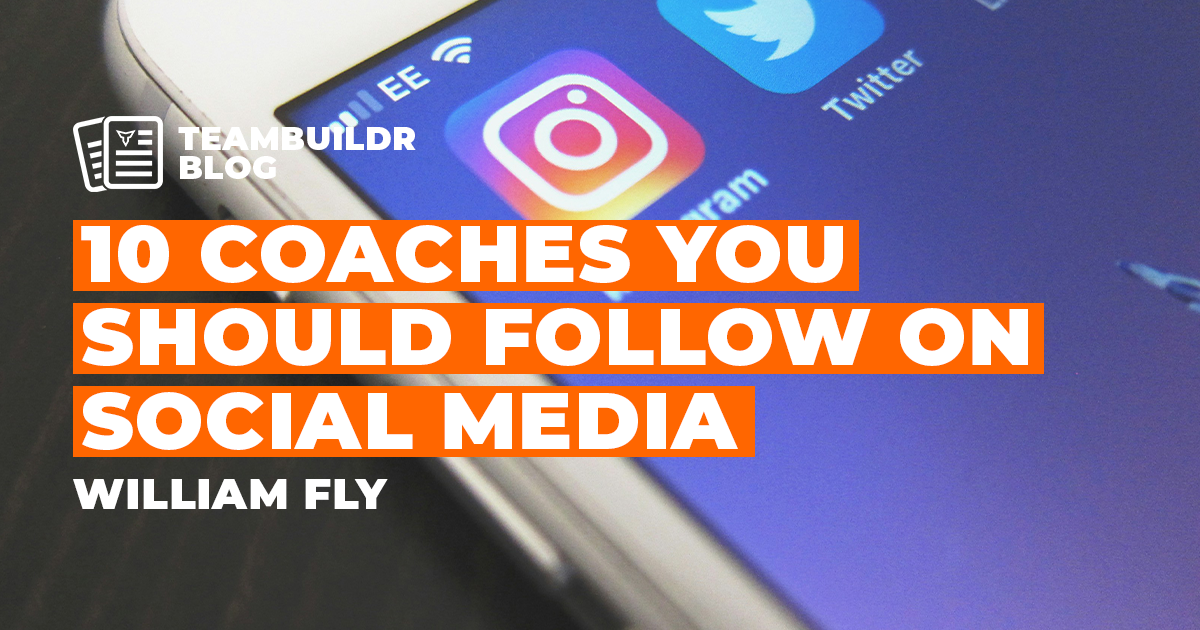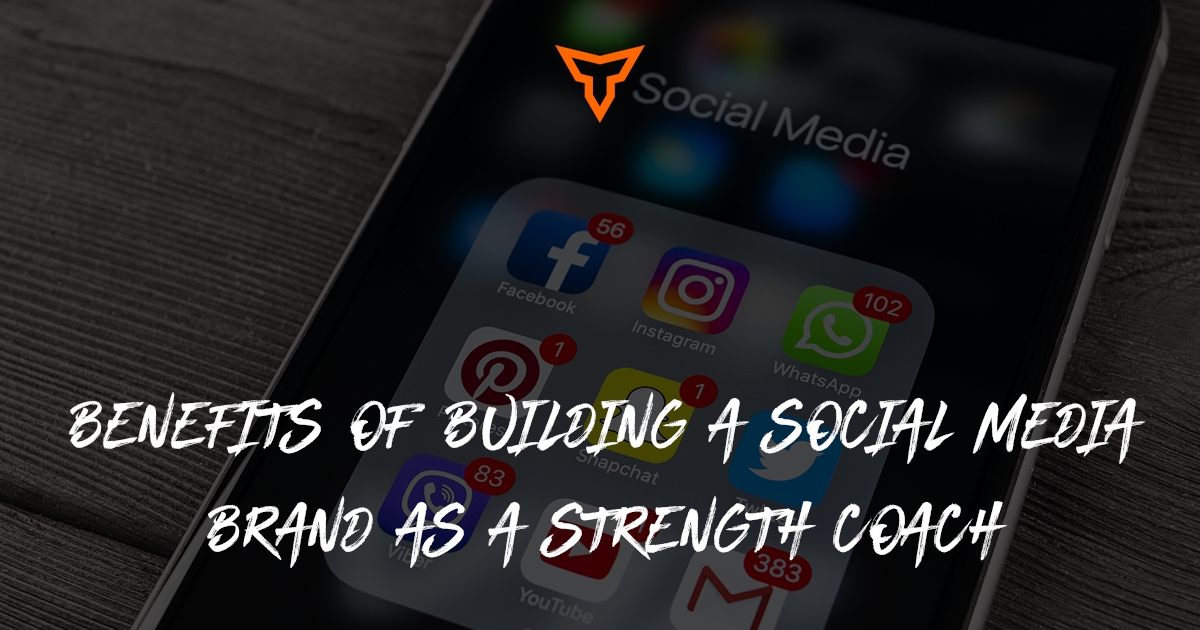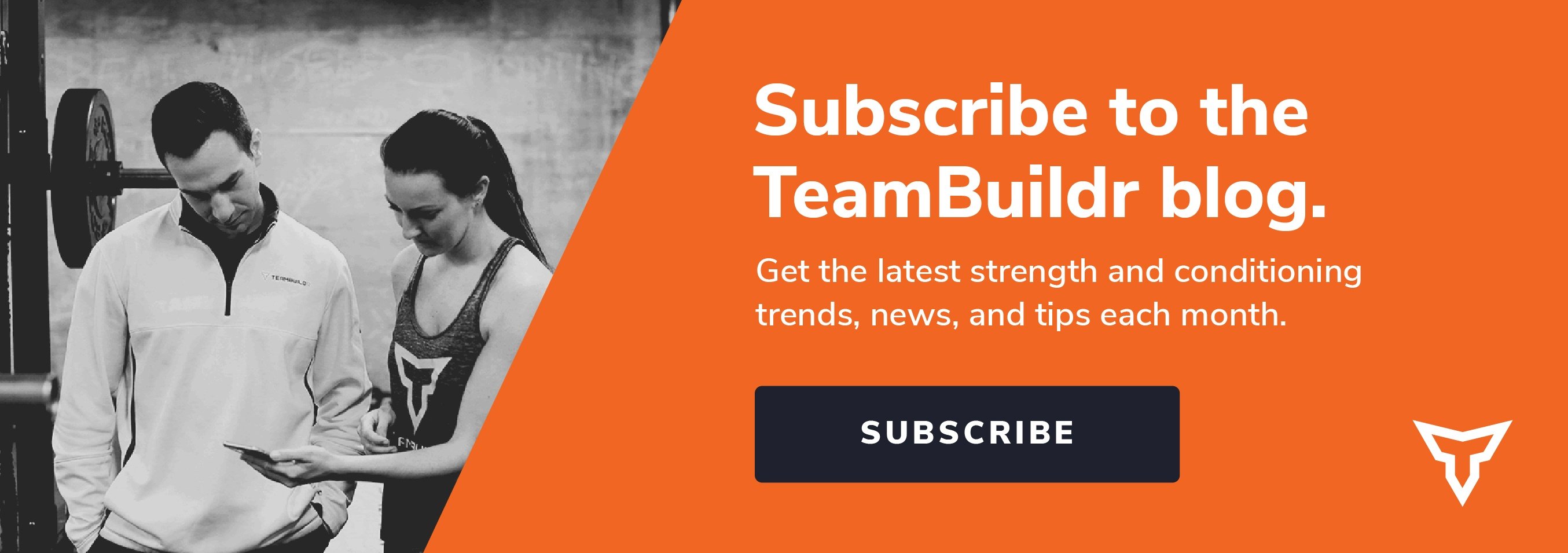Q&A with The Citadel's Head Strength Coach Donnell Boucher on Social Media in the Strength and Conditioning Industry
"What are some reasons that strength coaches should be on social media?"
There are three main drivers behind our involvement on social media: Us, Them and The Industry.
‘Us’ refers to our staff. This is about recruiting, developing and placing our staff members. Social Media is an extension of the resume in 2018; it’s a great place to go and learn about someone. I encourage my staff members to leverage that tool in the same way you’d be told to craft an effective cover letter. We see social media as a way of presenting our staff and what its like to work at Citadel Strength.
“Them” refers to our athletes, mostly. We think the work our athletes do in training is impressive and we’re happy to share it with their friends and families. These people spend a lot of time training and preparing for gameday and that experience is interesting to the people who are invested in them. “Them” also refers anyone we work with across the campus; this type of interaction is rarer, but we like to highlight collaborations and unique interactions when applicable or appropriate.
“The industry” is where we have an opportunity to say “Here is how we do things…” When I was coming up I always wanted to see more live action of teams IN the training process. Those experiences were hard to come by before social media. Now we can showcase what a training session looks like and feels like in real time. By sharing our program on the various platforms, we might help someone get some new ideas or challenge old ones. We also open ourselves to feedback and critique! Criticism makes you better, so we welcome that.
Those are the drivers as to WHY we’ve been in involved. The benefits we’ve seen to push for coaches to be on social media are:
- Free and familiar way to easily communicate with teams/groups
- Richer candidate screening process
- Crowdsource ideas
- Open and free flowing dialog across time and location demands
- Exposure to peers and leaders
- Interaction with community
- Athlete insights
- Fundraising
- Highlighting leadership behaviors
What about the “haters”? How do you deal with them?
There are haters everywhere. People don’t like seeing other people do things they can’t or won’t. Better to not get caught up in that bitterness. For us, we’re not really at a scale where we see much of it at all. Our interactions are positive. We know who we are, and I outlined above WHY we’re on social. If people want to ‘hate’ on that reasoning, they can knock themselves out!
What do you think about strength coach social media as a whole? Is it positive? Negative? Is it productive for the profession?
The case for coaches to be on social media is as simple as this: 10 years ago, I’d tell my family members “I’m going to be a strength coach,” and they’d ask “What’s that? Like a gym teacher?” The profession is better understood and more recognizable than those times. Social media has had something to do with that. Social media for us, like in many industries, has made it possible to better display the positive elements, and expose the negative side that needs fixing. More transparency is usually a good thing, albeit uncomfortable at times.
What’s a good way to handle personal vs. professional social media? Is there a difference?
Coaches must decide what they have time for. I don’t really separate the two; I’m not looking for some angle to convert people into customers. For the most part, I keep my personal life private and try to stick to business on my channels. When I get on social media, 85% of the time there is some professional transaction taking place. I try to add value in some form. The other 15% of the time, I’m usually talking about pop-culture: movies, sports, music, leisure, etc. I steer clear of sex, politics and religion because I know better. What I value the most is what you find on my timelines: Our staff, our athletes, the industry and some fun.
What makes a strength coach good on social media? Is it always productive? Eg: Can a coach be popular on social but not be good for the profession?
I partially alluded to it but if a coach is on there trying to make money instead of adding value, they will resort to coercive tactics. That always turns me away. Also, especially true in 2018, the loudest mouths tend to get the most attention so it’s important to take things in through a filter.
How do you interact with athletes on social media?
This is another topic that I hear people are resistant to. I use it like any other communication medium, and I think it’s the best one. We use Facebook Groups and Messenger for various teams. For some teams, they are the preferred method of communication and content distribution. I’ve used Snapchat for direct communication. My staff and I get messages on Twitter and Instagram all the time. I’ve seen cases where a kid is unreachable on their phone, but somehow, they respond on social media. This is very telling. Right, wrong or indifferent, the player’s attention is on social media. You have to fish where the fish are.
Subscribe to our blog
Subscribe to receive the latest blog posts to your inbox every week.
Related posts

Maximizing Your Gym’s Social Media Presence

10 Coaches to Follow on Social Media for Inspiration

